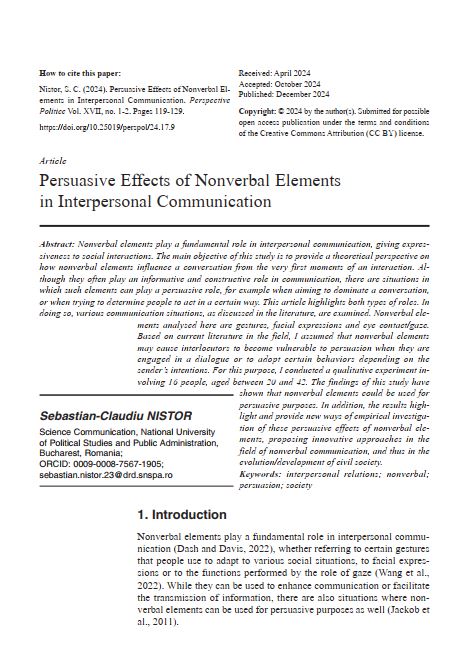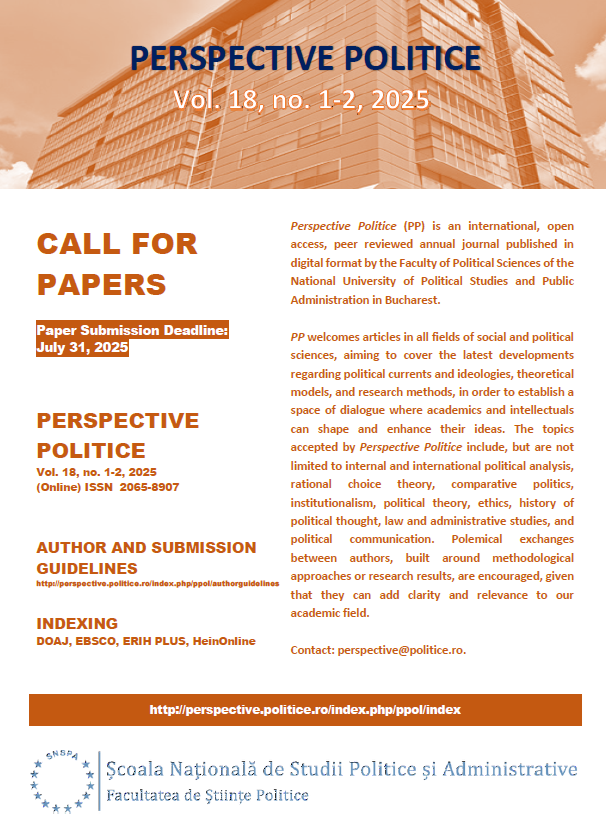Persuasive Effects of Nonverbal Elements in Interpersonal Communication
Abstract
Nonverbal elements play a fundamental role in interpersonal communication, giving expressiveness to social interactions. The main objective of this study is to provide a theoretical perspective on how nonverbal elements influence a conversation from the very first moments of an interaction. Although they often play an informative and constructive role in communication, there are situations in which such elements can play a persuasive role, for example when aiming to dominate a conversation, or when trying to determine people to act in a certain way. This article highlights both types of roles. In doing so, various communication situations, as discussed in the literature, are examined. Nonverbal elements analysed here are gestures, facial expressions and eye contact/gaze. Based on current literature in the field, I assumed that nonverbal elements may cause interlocutors to become vulnerable to persuasion when they are engaged in a dialogue or to adopt certain behaviors depending on the sender’s intentions. For this purpose, I conducted a qualitative experiment involving 16 people, aged between 20 and 42. The findings of this study have shown that nonverbal elements could be used for persuasive purposes. In addition, the results highlight and provide new ways of empirical investigation of these persuasive effects of nonverbal elements, proposing innovative approaches in the field of nonverbal communication, and thus in the evolution/development of civil society

Downloads
Published
Issue
Section
License
Copyright (c) 2024 Sebastian-Claudiu NISTOR

This work is licensed under a Creative Commons Attribution-NonCommercial-ShareAlike 4.0 International License.



